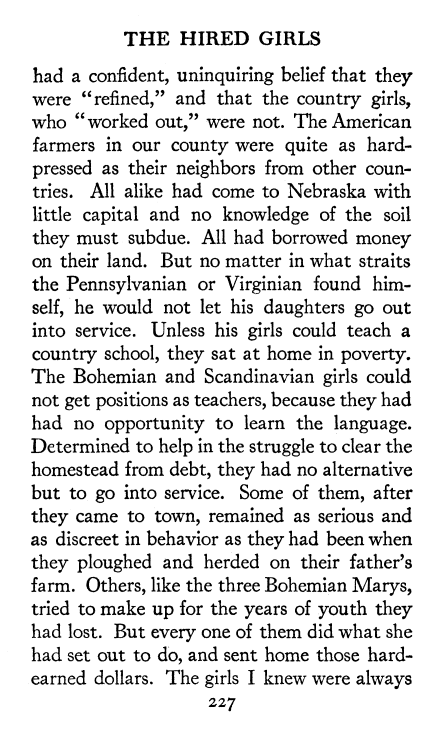 p226 _
-chap- _
toc-1 _
p227w _
toc-2 _
+chap+ _
p228
p226 _
-chap- _
toc-1 _
p227w _
toc-2 _
+chap+ _
p228
had a confident, uninquiring belief that they
were "refined," and that the country girls,
who "worked out," were not. The American
farmers in our county were quite as hard-
pressed as their neighbors from other coun-
tries. All alike had come to Nebraska with
little capital and no knowledge of the soil
they must subdue. All had borrowed money
on their land. But no matter in what straits
the Pennsylvanian or Virginian found him-
self, he would not let his daughters go out
into service. Unless his girls could teach a
country school, they sat at home in poverty.
The Bohemian and Scandinavian girls could
not get positions as teachers, because they had
had no opportunity to learn the language.
Determined to help in the struggle to clear the
homestead from debt, they had no alternative
but to go into service. Some of them, after
they came to town, remained as serious and
as discreet in behavior as they had been when
they ploughed and herded on their father's
farm. Others, like the three Bohemian Marys,
tried to make up for the years of youth they
had lost. But every one of them did what she
had set out to do, and sent home those hard-
earned dollars. The girls I knew were always
[[227]]
p226 _
-chap- _
toc-1 _
p227w _
toc-2 _
+chap+ _
p228